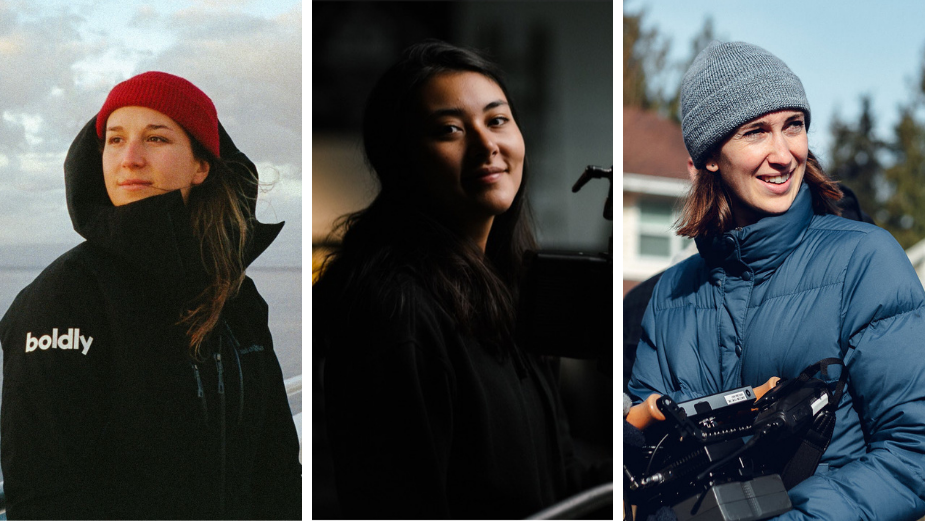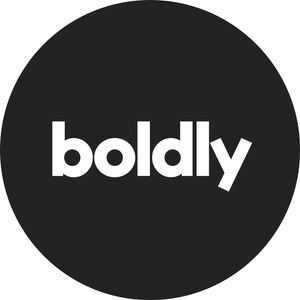
Closing The Gap: Filmmakers Discuss the State of Diversity and Representation

Perhaps the overriding story of the 21st century so far has been one of significant social change. Old assumptions and identities have been swept away, and attitudes which were long left unquestioned have been held to account. For all the noise and conversation, however, it’s easy to lose sight of how much has been accomplished - and how much remains to be done.
To take the temperature on how things stand today, LBB sat down with three influential filmmakers. Shelby Manton is an executive producer and partner at Boldly, a content studio in Vancouver, BC. Kaayla Whachell is an Okinawan/Metis/Czech cinematographer whose first feature film as a cinematographer, Portraits from a Fire, won Best Canadian Feature at the Edmonton International Film Festival 2021. She is also one of only 5% of cinematographers across the industry currently identifying as women. And Sophie Jarvis is a director known for high-concept and absurdist work in short form, and is currently in post-production on her feature debut Invasions.
All three of these filmmakers have enjoyed success in their careers, and yet this has often been in spite of - rather than because of - the wider culture and landscape of our industry. At varying stages each of Shelby, Kaayla, and Sophie have encountered unnecessary challenges as a result of an industry culture which is changing, but changing too slowly. Here, the filmmakers reflect on their experiences of these issues.
Opening The Door to Change
“I began my career nine years ago, and I can remember that questions were being asked around the gender gap - mostly from thought leaders and activists in the film & TV world”, recalls Shelby.
“At Boldly, we’ve always done our best to have a diverse roster of directors - yet we still have a long way to go. When we began, it was pretty disheartening to see the director rosters of the biggest production companies out there are mostly comprised of men - and predominantly white men.”
For Shelby, taking up a leading role within Boldly has presented an opportunity to enact many of the changes from which the industry could benefit more widely. “There’s still so much work to do to provide adequate space and inclusion of diverse voices”, she says, “but there are steps which we ensure to take as a company”.
For the partner and EP, those steps can be broken down into three categories. “Firstly, when we crew up for a Boldly production, we work hard to create safe environments for our crew and collaborators. This comes into play when it comes to who we hire, how we hire them, how they are treated on set, and how expect them to treat others on set”, she begins. “Secondly, we make a point to give opportunities to people who haven’t yet had the chance to get tangible experience on set, specifically for women and BIPOC crew.”
But, perhaps most importantly, Shelby is committed to solving what she sees as the ‘chicken and egg’ problem at the heart of this issue.
“And thirdly, the biggest challenge we’re seeing when it comes to Women and BIPOC directors in the advertising world is that agencies and clients want to see that a director has ‘done it before’. But, of course, only those who have been given opportunities have ‘done it before’”, she explains. “That’s why production companies need to push agencies and clients, and those agencies and clients need to open their minds to working with newer emerging directors. This is especially true on projects that are low budget and relatively low stakes. Those projects are a perfect training ground and growth opportunity for emerging talent”.
In addition to what happens on-set, all three of our interviewees highlighted another effective way to drive meaningful change: Mentorship.
“Ava DuVernay’s company, Array, does important work”, says Sophie. “They support and distribute films made by people of colour and women, as well as providing resources and initiatives on a constant basis. Array is the distributor on The Body Remembers When the World Broke Open, which I worked on as a production designer. The production company, Experimental Forest Films, offered paid mentorship to emerging Indigenous filmmakers in each department, along with providing grants year-round for marginalised filmmakers. These companies are showing what can be achieved through actions that focus on elevating BIPOC voices and providing early career support.”
Critically, mentorship schemes become most effective when they provide genuine help to filmmakers by paying the bills. “Paid mentorships provide individuals with the chance to fully engage themselves in the program, and not force them to choose between paying rent or doing what they really want to do'', says Kaayla. “If a company is wanting to close the gender gap or raise more excluded voices, then forming paid mentorships is a great way for everyone to learn from each other”.
“The best initiatives tend to be when producers offer paid mentorship on-set”, agrees Shelby. “This allows people to learn the technical skills required to grow in this industry, while also being able to get by financially. Without this direct support, it is challenging for a new director to build a portfolio of work that compares to their more privileged colleagues”.
Creating Space in the Room
The risks of failing to take action are potentially severe. Whilst acknowledging the various issues is at this stage nothing new, it’s important to understand the effect they have had - and continue to have - on the health of the industry and those who work within it.
As Kaayla explains, the issue of the gender gap amounts to ‘make-or-break’ for some filmmakers. “There were times when it made me question whether a career in cinematography is actually possible”, she says. “It’s typical for me to hear that I'm the first female director of photography that a crew member has worked with. Until productions can accept females and non-binary individuals as equally capable of being filmmakers, the wage disparity and lack of opportunity will continue”.
Acknowledging Kaayla’s experience, Sophie strikes a similar note. “I finished film school in 2012, where my cohort was predominantly white and male. When my grad film The Worst Day Ever was accepted to the Toronto International Film Festival, it was the first time I realised that directing was a real option for me”, she says. And, as time went on, the issue became more and more personal. “My career moved slower than my male peers, despite my schooling and the success of my short films. A pivotal moment was in 2016, when the #MeToo movement made public the discourse that many of us were having in private. In reaction to that, opportunities cropped up everywhere - especially for white cis women like myself. And yet non-binary and trans identities are still often excluded from the conversation. There is more awareness nowadays, but meaningful change is slow”.
Ultimately, there’s an overwhelming feeling that while diversity and inclusion have been high on the agenda for conversation, they haven’t been prioritised in terms of action. “There is a sense that this is finally beginning to change in a meaningful way”, says Shelby, “and I hope that is happening for the right reasons - not because leaders feel like times are changing and they need to keep up appearances. Inauthentic, performative action has unfortunately become a frustrating part of this movement - as well as many other social movements of late - which leads to stagnancy and lack of real change”.
Increasingly, there’s a lack of patience for commonly-heard excuses. For example, Kaayla argues that the idea of BIPOC filmmakers being ‘hard to find’ is symptomatic of a deeper-rooted problem. “When I first decided to be a DOP, I was constantly searching for a female BIPOC cinematographer mentor in Vancouver”, she recalls. “I couldn't find anyone with whom I shared a similar experience, nor someone who even looked like me. But how is it that I can walk into any grocery store in Vancouver and instantly see someone who looks like me, yet I can't find another full-time, POC, female cinematographer in a city that employs 65,000 film workers?”
No Time For Complacency
The positive side to this story, such as it is, is that the awareness these conversations have generated has proven to be a valuable tool for many activists and initiatives.
As Shelby and Boldly’s ideas show, there is a growing recognition of these problems - and an appetite for change - throughout the industry. “The media we consume is largely from a white and male perspective”, says Sophie, “even when the stories are about people who are not. The criticism against this is growing louder, and I hope it leads to a place where people with diverse experiences are supported in telling their own stories”.
Across the industry, there is a large and growing number of likeminded people who are determined to advance positive change. “We have partnered with nonprofit FREE THE WORK* as they continue to expand in Canada”, says Shelby. “Their talent comprises over 15,000 underrepresented creators in over 100 countries behind the camera. We were attracted to working with them as a result of their actionable pledges, since we believe in doing the work. They have a plethora of talent playlists if you ever need to find amazing fresh talent, including Kaayla & Sophie. We hope that our Agency and Client partners will take action with us as we are all responsible for building a better industry”.
Ultimately, it will be our willingness to take meaningful action through schemes such as mentorship which determine whether we eventually arrive in a more equal place for the industry. “The conversation concerning the gender and diversity gap is more widely acknowledged, but not all of the actions needed to close the gap have been taken”, notes Kaayla.
There is, then, a sense that while progress has been made this is no time for the industry to rest on its laurels. As each of these filmmakers’ experiences show, we have arrived at a point where we have identified the problems and understand the potential solutions. What remains is perhaps the most challenging part - taking the required action to close the gap.
*FREE THE WORK’s website is free-to-use, and kept open thanks to donations from companies like Boldly and others. To find out more (and to donate), click here.
There are many other nonprofits and initiatives dedicated to tackling the issues highlighted in this article. These include - but are not limited to - ImagineNATIVE, Ryan Reynolds’ GEI Program, Ghetto Film School, and Streetlights.













